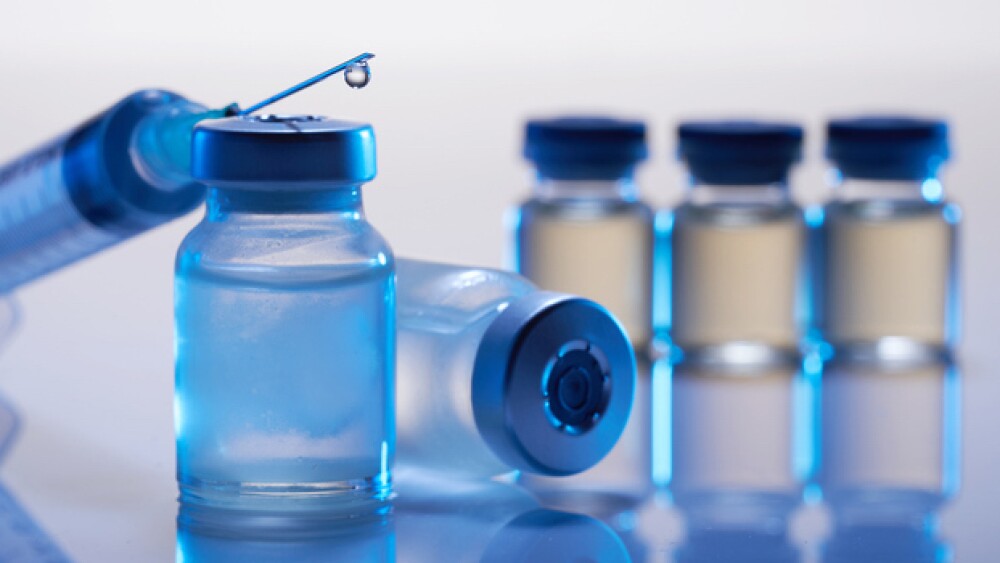At the urging of the Biden administration, Sanofi and AstraZeneca are pledging 230,000 additional doses of their respiratory syncytial virus infant immunization Beyfortus in January 2024.
Pictured: Syringe on top of vaccine vials/iStock, May Lim
Following a meeting with the White House, Sanofi and AstraZeneca have pledged to deliver 230,000 additional doses of their respiratory syncytial virus infant immunization Beyfortus (nirsevimab-alip) in January 2024 to help meet demand.
The commitment for additional doses come after senior Biden administration officials met with representatives from Sanofi and AstraZeneca on Wednesday, emphasizing the “need for manufacturers to work quickly to meet demand for dose availability” during the current respiratory syncytial virus (RSV) season, according to the White House’s Thursday announcement.
In recent weeks, the Administration has been meeting with manufacturers—including Sanofi and AstraZeneca—to identify opportunities to make more RSV immunization doses available to infants. Last month, the effort resulted in the release of 77,000 additional doses of 100-mg Beyfortus.
During Wednesday’s meeting, White House officials and the pharma representatives also discussed the upcoming 2024-2025 RSV season and how companies will be able to meet the projected demand for Beyfortus.
Approved in July 2023, Beyfortus is a long-acting monoclonal antibody that induces immunity against RSV by targeting and binding to the part of the virus that it uses to attach to host cells. The mechanism of action allows Beyfortus to prevent infection at a cellular level, leading to passive immunity in infants. Beyfortus was first developed by AstraZeneca. Sanofi paid $130 million upfront in 2017 to jointly develop and commercialize the asset.
In a statement following Wednesday’s White House meeting, Sanofi said that since its launch in September 2023 “hundreds of thousands of infants in the U.S.” have been immunized with Beyfortus.
“This is the first season in which an immunization for babies against respiratory syncytial virus has been provided on such a broad scale,” according to the company’s statement.
However, soon after launch, orders for Beyfortus outpaced the number of doses that the companies planned to make available for the current RSV season. In particular, demand for the 100-mg dose quickly overtook its supply. The pharma partners have since been working with the Centers for Disease Prevention and Control to deliver more doses to infants.
Sanofi and AstraZeneca said they are also taking steps to boost their supply line for the coming RSV seasons, including working with stakeholders to better assess demand and augmenting their manufacturing network for Beyfortus.
GSK and Pfizer also play a role in RSV immunization in the U.S., with their respective FDA-approved vaccines Arexvy and Abrysvo—both of which are indicated for adults 60 years of age and older. Of the two, GSK appears to be a more dominant market force, inoculating around three million adults nationwide who are at risk of RSV.
Tristan Manalac is an independent science writer based in Metro Manila, Philippines. He can be reached at tristan@tristanmanalac.com or tristan.manalac@biospace.com.






